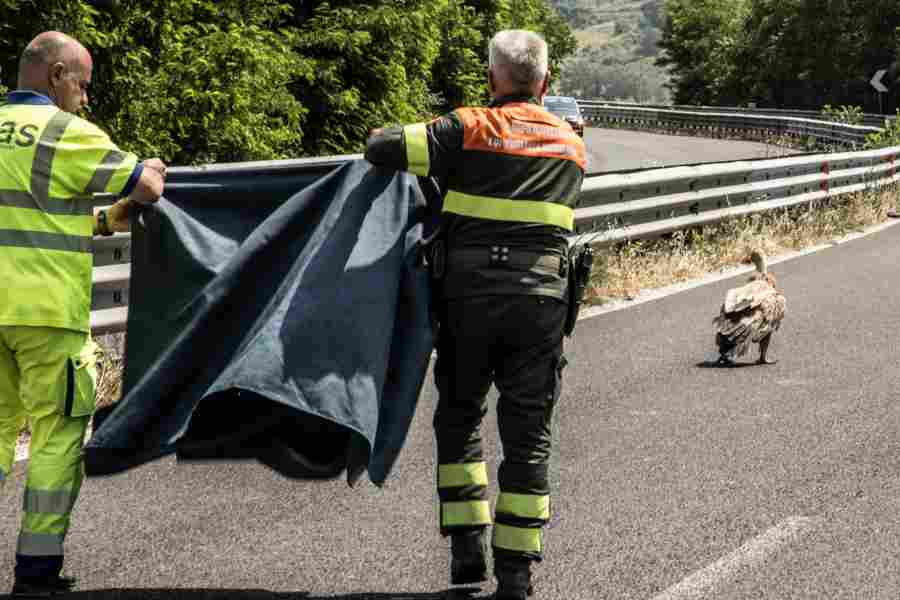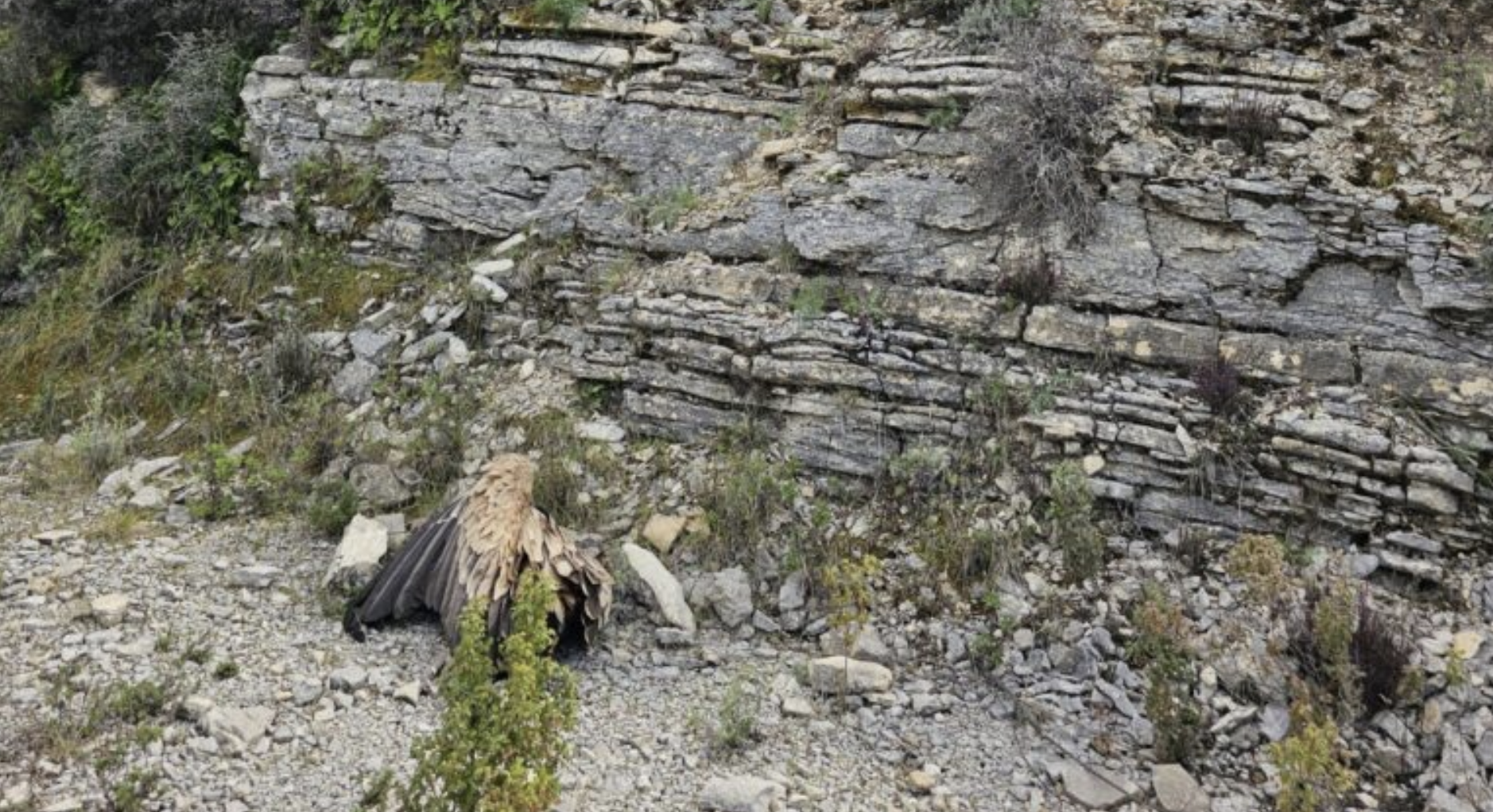
A story like no other. Conservationists in Israel took a new approach to save a Griffon Vulture chick that lost its mother due to electrocution. As the Griffon Vulture dad could not provide enough food for the chick to grow strong and healthy, conservationists had to intervene. The first thought was to capture and include the chick in captivity, which was not ideal. But then they thought of something never done before, to deliver food with a drone.
The evolution of the chick
The story began in the winter of 2019 when the beginning of the breeding season of the female Griffon Vulture K70 and male T99 was documented on camera by the Israeli Raptor Nest Cam project. This project is coordinated among the Israel Nature and Parks Authority and the Israel Ornithological Center of the Society for the Protection of Nature in Israel.
This old pair appeared in front of the cameras at the end of November but did not show signs of breeding behaviour immediately. They started the courtship, mating and nest building only toward the end of December. Then, in the evening hours of 19 January 2020, or early morning hours of 20 January, they laid their only egg, and on 12 March, after several days of incubation and care by the parents, their chick hatched! Both parents were busy bringing food to the chick and protecting it from intruders, and the little one was gradually developing. But then disaster struck. Unfortunately, the Griffon mother met a tragic end on 4 June as she collided with a powerline, which poses a significant risk to vultures and soaring birds. This meant that the Griffon dad had to feed and tend to the chick alone, and conservationists feared that he wouldn’t provide enough food.
‘Mama drone’ to the rescuehttps://www.facebook.com/plugins/video.php?href=https%3A%2F%2Fwww.facebook.com%2F1518871808419083%2Fvideos%2F643520446265483%2F&show_text=0&width=560
After closely monitoring the situation, conservationists realized that the chick was not getting the necessary food intake. They had to intervene to ensure that the vulture would grow to be healthy. At first, conservationists thought that the only solution seemed to be climbing to the nest, capturing the chick and placing it in captivity to ensure it ate enough, which was not ideal. But then someone suggested another option that was a bit far-fetched but intriguing. What if a drone dropped food to the nest, allowing the vulture could remain in the wild. To achieve this challenging task, several preparations took place. The Israeli Army prepared for the mission by making a mock-up of the nest site in one of their bases and conducting several practice flights to be ready to attempt the real thing. Thanks to this and the help by Xtend, ‘Mama Drone’ successfully delivered food to the nest every two to three days and all worked out perfectly. And a few weeks later, the chick was ready to take its first flight. It fledged on 26 July at 136 days old, and so far, it is doing well in the wild.
What a great example of various stakeholders working together to save a protected species!
Griffon Vultures in Israel
Sadly Israel’s Griffon Vulture population is in trouble. In the past 50 years, the numbers of Griffon Vultures in Israel is steadily declining. Until the late 1950’s hundreds of pairs of Griffon Vultures bred all over the country from the extreme north to the Eilat Mountains. In the early 2000’s only around 120 pairs bred and today less than 60 pairs remain. Today the majestic Griffon Vulture is critically endangered (CR) in Israel and other places around the eastern Mediterranean. This is drastic decrease is a result of similar poisoning incidents, usually caused by farmers to protect their livestock from predators. The latest mass poisoning occurred in May 2019, killing eight vultures and nearly wiping out their population in Golan Heights. The worst instance of poisoning took place in 1998 when about 40 vultures were found dead after eating the carcasses of poisoned cattle or wild animals.
In efforts to reverse the decline wildlife organisations in Israel have been carrying out projects to boost the local population include transporting and releasing birds from Spain where the Griffon Vulture population is increasing. However, this recent incident will severely damage those efforts, and Griffon Vulture is dangerously close to becoming extinct in Israel.
Sign up to our newsletter and never miss any vultures news!




